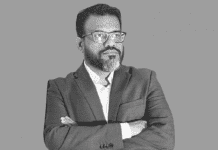
Narayana Murthy, the co-founder of Infosys and a prominent figure in the Indian tech industry, has ignited a heated debate with his recent comments on the need for increased working hours in India. In a podcast, Murthy suggested that young Indians should be prepared to work 70 hours a week, akin to the post-war rebuilding era in Germany and Japan, to elevate the country’s productivity and compete with economies like China.
Murthy’s remarks have garnered a wide range of reactions, raising questions about the implications of such a work ethic in a world where discussions about a four-day workweek and work-life balance are gaining momentum. Some critics argue that demanding 70-hour workweeks could border exploitation, negatively impacting individual well-being and mental health.
What is Murthy’s Perspective
To understand Murthy’s perspective, it is crucial to consider the context in which he made these comments. He spoke about the immense opportunities India has over the next decade and how hard work, persistence, and sacrifice are essential to transform these opportunities into reality. His call was framed as an endeavor for nation-building, highlighting the need for commitment and determination.
“It’s a well-established truth that achieving exceptional results demands exceptional effort.”
It’s a well-established truth that achieving exceptional results demands exceptional effort. Take, for example, renowned figures like scientists Thomas Edison and Dr. Abdul Kalam, sports icons Milkha Singh and PV Sindhu, and business leaders Ratan Tata and Narayan Murthy himself. Their unwavering dedication to their fields was driven by a profound passion. They remind us that exceptional effort is a prerequisite to success.
Edison said, “Genius is one percent inspiration and ninety-nine percent perspiration.” Their commitment often went beyond financial rewards. Still, some have questioned why anyone would put in so much time and energy for the low salaries that the jobs offer.
This viewpoint provides a different perspective on the matter. The connection between effort and outcomes isn’t always linear. Long-term rewards may not be obvious, but that shouldn’t discourage individuals from giving their absolute best. In the face of challenges and uncertain results, it’s people’s determination and resilience that often lead to exceptional achievements.
Moreover, Murthy’s comments go beyond nation-building; they touch on the importance of maximizing individual potential and character development. Willpower and discipline are prerequisites for achieving great results. The idea is echoed by Swami Dhandapani, who offers a recipe for building willpower and discipline: “Finish what you begin, do a little better than you think you can, and do a little more than you think you can.”
The argument against working hard to maintain a work-life balance needs to be examined. While it’s essential to balance the multiple roles individuals play in life, it doesn’t mean sacrificing dedication and excellence. Rather, it’s about giving your best in every moment, regardless of the role you are fulfilling at that time.
This is where the strength of an individual’s character comes into play. People with strong discipline, a heightened level of awareness, and a practice of being fully present at the moment can excel in whatever they are doing at that point in time. This perspective encourages a more holistic approach to life, where hard work and excellence are not confined to the professional realm but can enhance all aspects of one’s life.
Narayana Murthy’s comments have sparked a vital dialogue about the interplay of hard work, productivity, and work-life balance. While the debate may be divisive, it underscores the essential role of individual dedication, discipline, and unwavering determination in the pursuit of excellence, be it for personal growth or nation-building.








